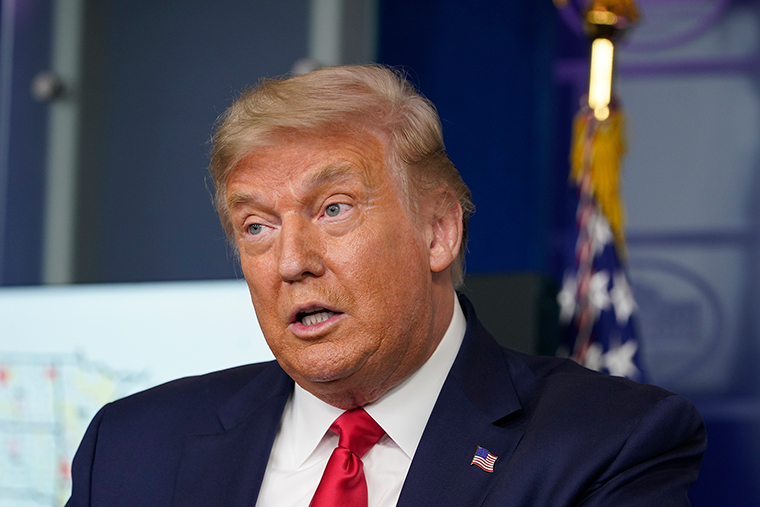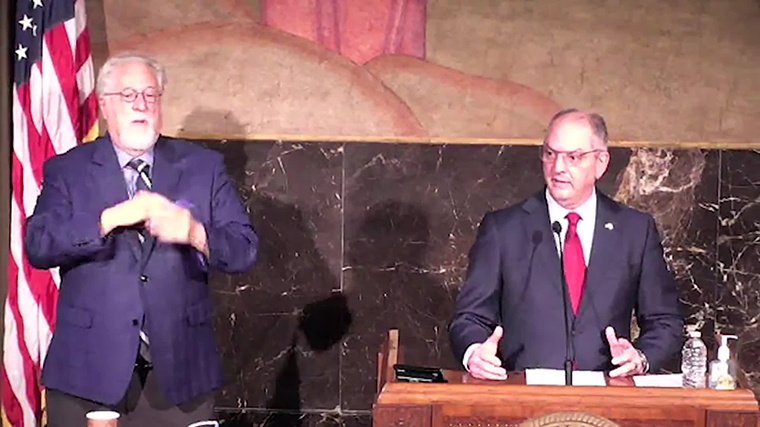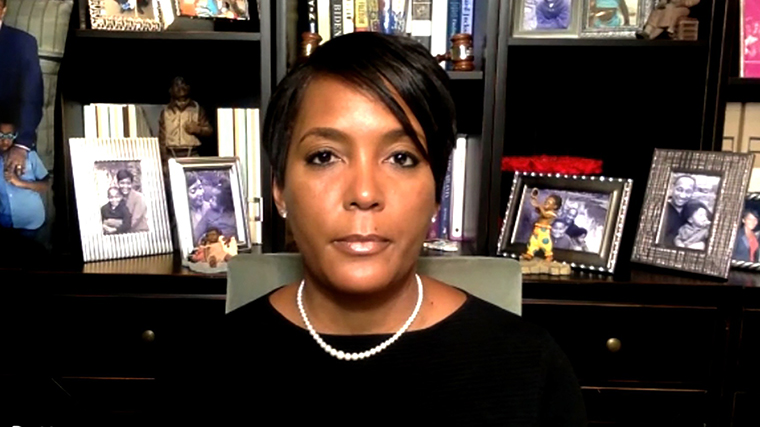Trump cancels Jacksonville portion of GOP convention
 Evan Vucci/AP
Evan Vucci/APPresident Trump announced today at a press briefing that there will not be Republican National Convention activities in Jacksonville, Florida, because of the coronavirus pandemic.
The President said events in Charlotte, North Carolina, will still be held and he will still make an acceptance speech in a different form.
Trump said he “looked at his team” and told them, “it’s time to cancel the Jacksonville component of the GOP convention.”
“The delegates are going to North Carolina, they’ll be doing the nomination,” Trump said. He added that telerallies would take place as well.
Watch:
CNN's Nikki Carvajal contributed to this report.
Texas reports more than 9,500 new Covid-19 cases
From CNN's Raja Razek
Texas reported at least 9,507 new Covid-19 cases on Thursday, bringing the total number of cases in the state to approximately 361,125.
The state also reported at least 173 Covid-19-related deaths on Thursday. About 4,521 people have died across the state since the start of the pandemic.
Currently, there are at least 8,858 Covid-19 patients in Texas hospitals.
Note: These numbers were released by the Texas Department of State Health Services, and may not line up exactly in real time with CNN’s database drawn from Johns Hopkins University and the Covid Tracking Project.
Antitrust restrictions waived for companies making coronavirus antibody treatments
From CNN's Maggie Fox
The US Department of Justice said Thursday it would waive its usual antitrust restrictions for companies trying to work together to speed antibody-based treatments for coronavirus.
It said it would not challenge proposed efforts by Eli Lilly and Company, AbCellera Biologics, Amgen, AstraZeneca, Genentech, and GlaxoSmithKline to share information, including about manufacturing facilities and raw materials, to make monoclonal antibodies to treat or prevent Covid-19.
More details on the science and law: Monoclonal antibodies are natural or lab-made immune system proteins that home in on and neutralize a single specific target on a virus, or a cell. They’re being made in this case to try to stop coronavirus from infecting cells in people’s bodies.
Antitrust restrictions are meant, in part, to stop companies from coming together to fix prices or to make agreements on carving up markets and forcing out competitors.
The DOJ said the biotechnology and pharmaceutical companies had agreed not to do this.
“Among other competitive safeguards, they have committed that they will not exchange information related to the prices of those treatments or the costs of inputs for or production of those treatments,” the DOJ said.
Universities should do surveillance testing when students return in the fall, HHS official says
From CNN’s Jen Christensen
Admiral Dr. Brett Giroir, the assistant secretary for health for the US Department of Health and Human Services, said Thursday that he has been in talks with universities and colleges to help them strategize how they should be testing students when they return to campus this fall.
Giroir said that a lot depends on the rates of cases in the community and the specific demographics of the university, but generally, he has been urging universities to do surveillance testing.
Giroir emphasized this is not diagnostic testing, but surveillance testing that won’t burden the health system and could help universities track potential outbreaks and manage them early – before they become a bigger problem.
He said the labs on campus, even veterinary labs, could run these tests. The labs will not need an emergency use authorization from the US Food and Drug Administration to do this.
He said these labs can also do pool testing, which will be returned quicker. With pool testing, if a group of tests turns up positive, the lab can then refer those five students into the diagnostic testing system.
“Nothing’s a perfect solution, but it does not burden the health care system,” Giroir said, “and it lets colleges keep control of how they want to do it.”
Louisiana hospitals pause elective surgeries as Covid-19 hospitalizations increase
From CNN's Hollie Silverman
 Louisiana Governor's office
Louisiana Governor's officeHospitalizations are on the rise in all areas of Louisiana, with strains on capacity particularly in three regions: Lafayette, Lake Charles and Central Louisiana, Gov. John Bel Edwards said during a Thursday afternoon news conference.
Edwards said that some hospitals have had to put elective procedures on hold to create more capacity to treat Covid-19 patients.
Dr. Amanda Logue, chief medical officer of Lafayette General Health, said her hospital system has put elective procedures on hold to create more beds as they are "quickly running out of space."
The hospital system has had to decline 87% of transfer requests this month and has had to transfer some of their own patients as far away as Mississippi because they can't treat them, Logue said at the news conference.
They also don't have enough staffing to meet the capacity needs, as some have fallen ill, she added.
Logue said the hospital will continue to treat all emergency patients but is unable to do elective procedures.
Dr. Henry Kaufman, chief medical officer for Our Lady of Lourdes Regional Medical Center, said his hospital is also having issues with capacity due to staffing needs.
Kaufman said the intensive care unit at his hospital system is "near complete capacity."
He said he is also concerned that the delaying of elective surgeries has already had impacts on the community, as mammograms, recommended bypasses, and other procedures have been put on hold.
"I am still dealing with the aftermath of people presenting with the later stages of disease during our first wave of Covid cases," Kaufman said. "I have women who have weren't able to get their mammogram during the first wave and finally were able to get it, and likely presented with a later stage of disease and they would have otherwise."
Some context: Louisiana crossed the 100,000 case mark Thursday when 2,408 new cases were reported. The state now has 101,650 Covid-19 cases.
Roughly 91% of the new cases reported were community spread and 33% of the cases were identified in people age 29 and under, according to the Louisiana Department of Health.
Bars and nightclubs in Indianapolis to close through August 12
From CNN’s Rebekah Riess
New temporary restrictions to mitigate the resurgence of Covid-19 in Indianapolis, Indiana, were announced today.
“Masks are still mandatory – doubly so after the governor’s order. Aside from the list of exceptions provided in today’s order, masks must be worn over the nose and mouth whenever we are around each other in public – indoors or outdoors,” Mayor Joe Hogsett tweeted Thursday.
The mayor announced that social gatherings, including wedding receptions, banquets, and club meetings, won’t be allowed to exceed 50 individuals. This doesn’t include indoor religious ceremonies, which can be held at up to 50% capacity. Outdoor ceremonies can continue without restriction, Hogsett said.
The mayor has also ordered that bars and nightclubs that don't serve food, close until at least August 12, including bar seating at restaurants. While outdoor seating is preferred, restaurants can operate at 50% indoor dining capacity, but have to close for in-person dining between midnight and 5 a.m.
Personal services like tattoo parlors, nail and hair salons, and spas can operate by appointment only, while gyms and other fitness centers will be allowed to operate at 25% capacity.
Covid-19 will end up as a top 10 leading cause of death in 2020, CDC statisticians say
From CNN's Jacqueline Howard
Even though the US Centers for Disease Control and Prevention cannot start ranking leading causes of deaths until the end of the year in order to get a full year's worth of data, statisticians at the agency told CNN in an email on Thursday that they expect Covid-19 will end up among the Top 10 leading causes of death in the nation.
"We know that based on the # of COVID-19 deaths so far in 2020, it will end up as a Top 10 leading cause of death but won’t know exactly how high it will rank until next year," CDC mortality statisticians said in the email. "Heart Disease and Cancer, the two leading causes of death in the U.S., account for more than half of all deaths in the U.S. each year and that isn’t expected to change."
Final data are based on death certificates for the calendar year.
In 2018, the latest year for which final data is available, the top 10 leading causes of death among all ages in the United States were:
As of 5 p.m. ET, nearly 144,000 people have died from Covid-19 in the United States so far this year.
Immunity study suggests most of Canada still vulnerable to Covid-19
From CNN’s Paula Newton in Ottawa
A study released Thursday suggests less than 1% of Canadians have had Covid-19, although the rate of infection is likely several times higher than the number of reported cases.
While the study mirrors one released by the Centers for Disease Control and Prevention earlier this week, showing far more people were infected with the virus than originally observed, Canadians remain quite vulnerable to the virus.
Canadian public health officials say the country did a good job of containing the virus but warn that given these immunity results, keeping the virus contained in only going to get tougher as the economy reopens.
“There was early on this strange enthusiasm for herd immunity, that the virus would ripple through the population and we would all have immunity and we’d all be fine. That was always reckless and misguided simply because of the toll the virus would take but we also see here that was certainly unattainable,” said Naylor.
About the study: This early study examined 10,000 blood donations received in Canada between May 9 and June 8. A larger, follow-up study will be released in the coming weeks to get a more comprehensive assessment of the spread of the virus in Canada.
The study makes clear that "doubling down on good public health practices is imperative" if Canada is to avoid a resurgence of the virus. Naylor added that Canada has to "up its game" when it comes to testing and contact tracing.
“We’ve got to be smarter and more creative about how we do tracing and quarantine because realistically we have perhaps about a year of this current stalemate,” Naylor said.
Atlanta mayor says she's working with governor to "iron out" disagreements about Covid-19 restrictions
From CNN’s Pamela Kirkland
 City of Atlanta
City of AtlantaAtlanta Mayor Keisha Lance Bottoms, speaking at a virtual news conference on Thursday, said she is working to “iron out” disagreements fueling the legal battle with Georgia Gov. Brian Kemp over Covid-19 restrictions in the city.
She described a Wednesday call with Kemp as being a “good conversation” and went on to say the two are in agreement that “masks save lives.”
Bottoms also clarified the phase one rollback she announced on July 10 is a voluntary plan with voluntary guidelines.

 5 years ago
548
5 years ago
548 

